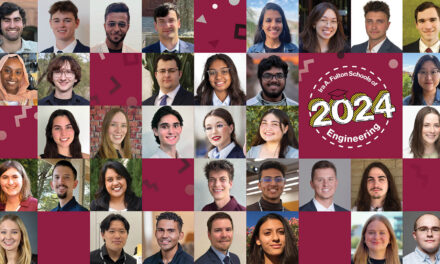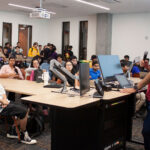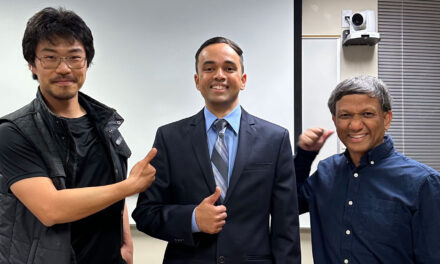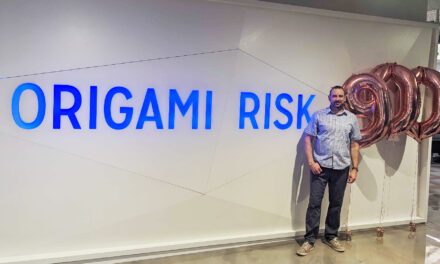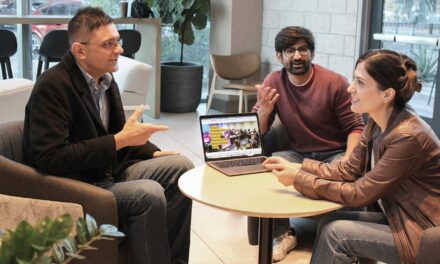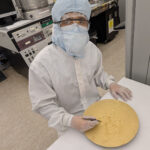
Preparing students for next leap forward in information science
May 15, 2007
Informatics literacy one of most valuable 21st-century career skills
Arizona State University students will soon have the opportunity to earn a certificate in an emerging technological discipline that’s becoming essential to career endeavors in many fields.
Starting in the coming fall semester, the School of Computing and Informatics in the Ira A. Fulton School of Engineering will offer a certificate in informatics — the study of using computer technology to gather, synthesize, store, interpret and visualize information.
Informatics literacy is becoming one of the more significant career skills of the 21st century, says Sethuraman Panchanathan, director of the School of Computing and Informatics.
“It’s not just about finding data but being able to assess the credibility and the value of information from the overwhelming amount of available resources, and being able to effectively put the information to productive use in whatever field you are working in,” he says.
Such “information fusion” capabilities will help drive economic competitiveness, scientific and medical advancements and even social and cultural progress, he says.
“There really isn’t an area where informatics doesn’t touch our lives,” says Dianne Hansford, an associate research professor in the engineering school who will be among informatics instructors. “Not only is it a key tool for popular web applications, it’s important in almost any area — particularly life sciences, social sciences, business, medicine, mathematics and engineering.”
Those with informatics skills “will be the real winners in this transforming world because they will have the tools to transform data into information and then into knowledge,” Hansford says. “Our ability to find answers to the most pressing problems of today, such as global warming and finding cures for diseases, depends on our abilities to develop innovative methods in informatics.”
The new program will certify completion of 24 selected credit hours in informatics. Three courses will be offered next semester:
• Introduction to Information Science (CPI 101)
• Mathematical Foundations of Information Science (CPI 200)
• Principles of Programming with Java (CSE 110)
The certificate program, designed to complement and enhance the student’s major degree program with informatics training, is open to participation of students from almost every graduate and undergraduate discipline, excluding computer science and engineering majors.
“The certificate’s value can be seen in the overwhelming support and commitment we have received from faculty all over campus,” Hansford says.
The relevance of informatics to a variety of fields is reflected in the membership of the committee setting the groundwork for the certificate program. In addition to faculty members in computer science and engineering, the committee includes faculty members whose expertise ranges from geography, mathematics and life sciences to library and information sciences, English, anthropology and sociology.







